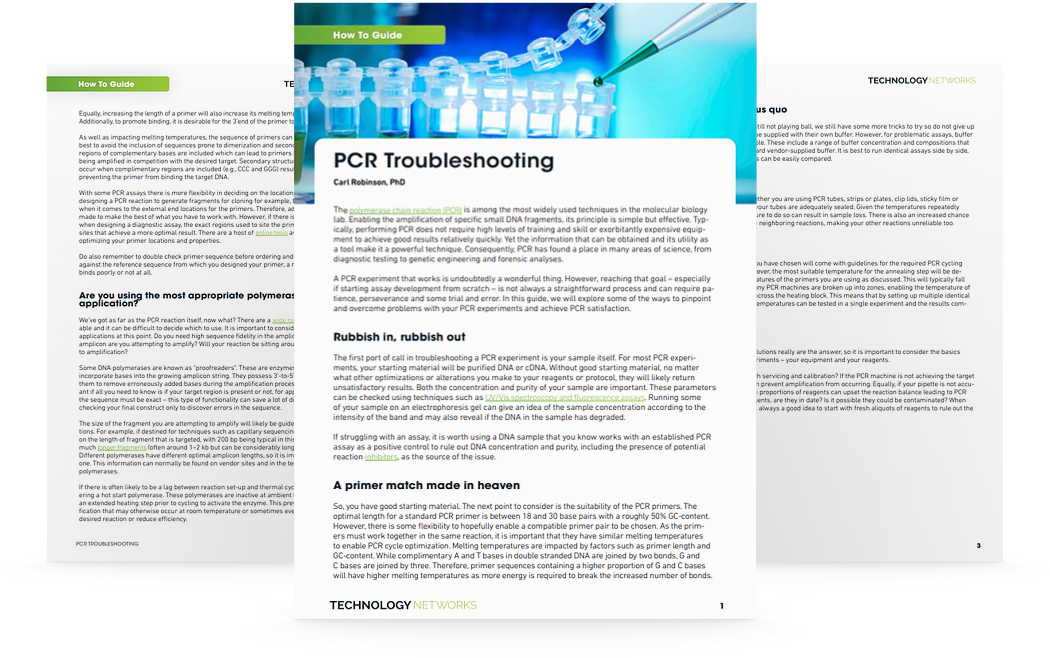
HOW TO GUIDE
PCR Troubleshooting



The polymerase chain reaction (PCR) is among the most widely used techniques in the molecular biology lab. Enabling the amplification of specific small DNA fragments, its principle is simple but effective. Typically, performing PCR does not require high levels of training and skill or exorbitantly expensive equipment to achieve good results relatively quickly. However, the information that can be obtained and its utility as a tool make it a powerful technique. Consequently, PCR has found a place in many areas of science, from diagnostic testing to genetic engineering and forensic analyses.
Download this guide to discover key considerations when performing PCR, including:
- Concentration and purity of starting sample
- Primer suitability
- Downstream applications
- Annealing temperatures